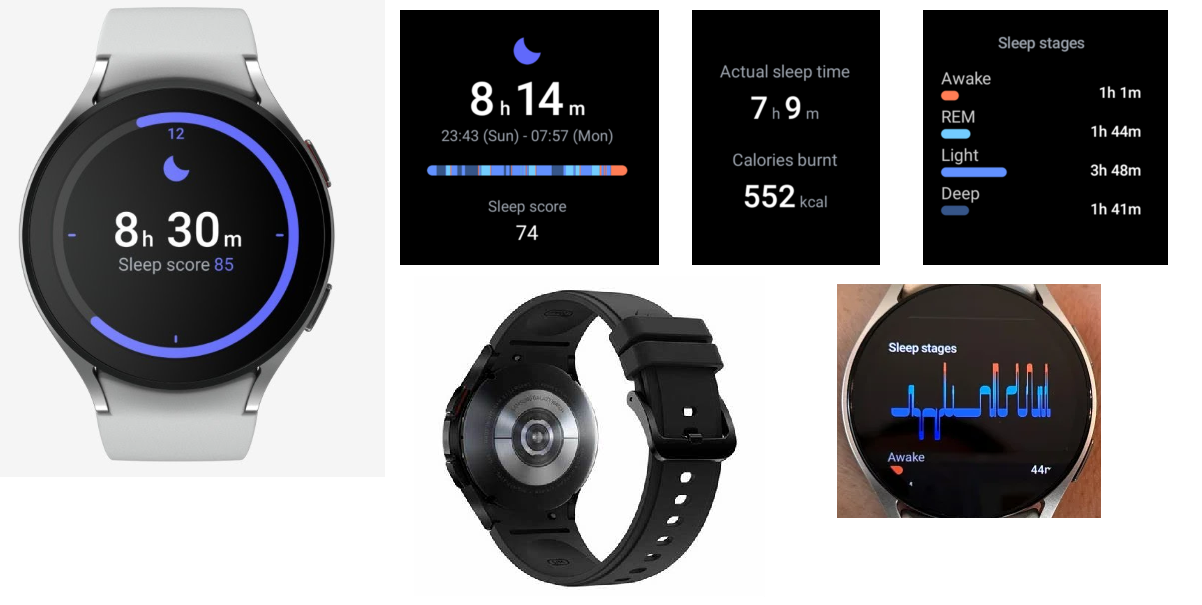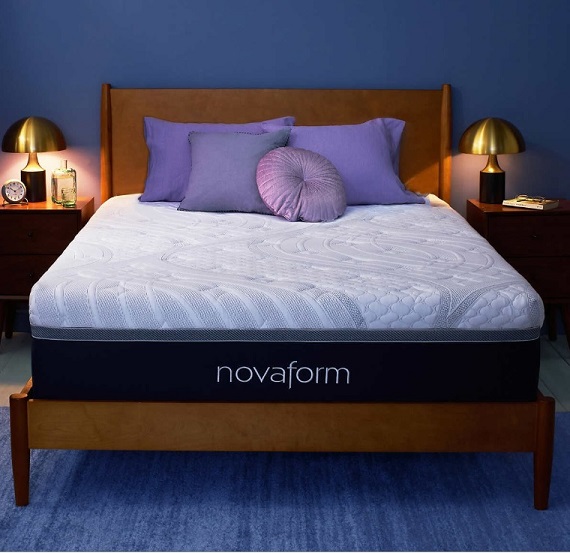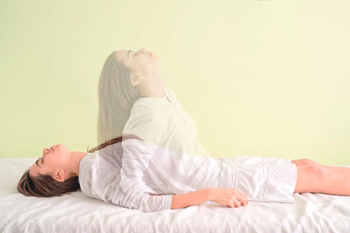Sleep Tracker on Samsung Watch 6

The Galaxy Watch 6 is an impressive smartwatch with many useful features, including fitness tracking. I recently acquired one of these devices and my attention was drawn to the sleep tracking feature in the Samsung Health application.
Using various internal sensors, the watch can measure your heart rate, your movements, and your skin temperature. Additionally, when paired with your phone, it can detect noises such as snoring. With all of these inputs, by simply wearing the watch as you sleep, a daily report is generated which describes the overall quality of the night’s rest, time spent in each sleep stage (REM, light, and deep sleep), how many sleep cycles you went through during the night, snoring time, blood oxygen levels, how many times you woke up, and skin temperature throughout the night.
The watch seamlessly connects to any Samsung phone and provides a few more details on the larger phone screen (although plenty is gleamed off the watch itself). Here are screenshots taken from my phone of my report from last night:
 |
 |
The four stages of sleep that Samsung Health records are:
Awake: brief awakenings like going to the restroom or changing your position
REM sleep: Rapid Eye Movement sleep. This is where most dreaming happens.
Light sleep: the first stage of sleep, it’s almost the “transition” state from wakefulness to more deep and steady sleep.
Deep sleep: your breathing, heartbeat, and brain waves reach their lowest levels and your body goes through important restoration and physical recovery.
Sleep Score
Lastly, the Samsung Health application grades your quality of sleep with a “Sleep score”. The sleep score considers the following factors:
Total sleep time: most people need between 7 and 9 hours of sleep.
Sleep cycles: passing through light sleep, deep sleep, and then REM sleep is considered 1 cycle. Most people get 4 -5 sleep cycles per night, and between 3 and 6 is considered healthy.
Wakefulness: How often did you awake during the night? Less is better.
Physical recovery: tissue growth and repair happen during deep sleep; the more deep sleep you get, the more your body can recover. This measurement is directly related to the amount of deep sleep one gets.
Mental recovery: Mental recovery happens during REM sleep. This is key for learning, memory, and emotional and mental health. This measurement is directly related to the amount of REM sleep one gets.
Samsung Health sleep tracking gives you a nightly score and tracks your score over time. Here is my last night’s score and my report after 2 weeks of usage:
 |
 |
Conclusion
I can’t imagine a sleep monitor that is easier to use. I love opening the app up in the morning on my watch and watching it process the data for 1-2 seconds before showing me these neat UI screens. I find it very informative and interesting. I can see that I haven’t been sleeping all that well lately. I didn’t need the watch to tell me that, but it certainly helps to motivate me to prioritize healthy habits that promote better sleep.
The one thing I am curious about, however, is that since it is only reading the information off my wrist, how accurate is it really in determining my stages of sleep? Without anything plugged up to my head to read my brain waves, I’m not so sure how accurate this device can be. I will have to use other devices and compare the readings from both to satisfy my curiosity here.
Addendum
A few days ago, I was wearing the watch while meditating. When I finished my meditation, I looked down and was surprised to see that my watch had recorded my session as a sleep session! I found it odd because I was very awake and aware during this session. However, the watch not only recorded it as light sleep, but even as deep sleep! And it was true -it was a particularly silent and calm meditation, but I was completely awake. So, this watch can also give me insights into my meditation practice. How cool. Have a look at the reading at 6:20:



